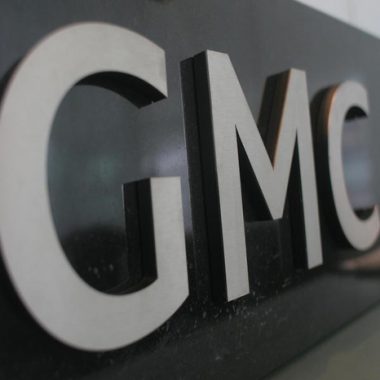The ‘bulk of doctors’ support having annual appraisals as part of the revalidation process as it leads to better patient care, the chief executive of the GMC has said.
Charlie Massey told delegates at Pulse Live that the annual appraisal and revalidation processes are leading to ‘beneficial reflections’, which ‘one has to assume’ are improving patient safety.
His comments came after he was was asked what evidence the GMC has that revalidation is improving patient care.
Mr Massey said that findings from the UMbRELLA group, a research group that has been evaluating the revalidation process since 2016, ‘tells us that doctors have been reflecting as part of that process and that most of the time when they’ve been reflecting it has led to changes in practice and one has to assume that those changes in practice are the ones that lead to benefits in patient safety’.
He added: ‘I do think that the fact that the bulk of doctors are saying that having gone through the annual appraisal process, that that is leading to a beneficial reflection is something that one should – and keep being beneficial to patients.’
According to GMC guidance, doctors are required to have regular appraisals in order to revalidate every five years.
But Mr Massey said that the regulator is taking a ‘range of different actions’ based on the Sir Keith Pearson review of revalidation including to ‘reduce burdens’ placed on doctors by their local employer.
He said: ‘A lot of the things that people described as burdens being borne out of the revalidation process are actually borne out of what local employers are deciding in terms of their in house process.
‘So I think there is a really important piece of work, which we have the intention of doing, in terms of really stripping it back and defining what revalidation is about.’
GPs have been concerned about revalidation and the use of their reflections since the Dr Bawa-Garba case, when it was suggested that the junior doctor’s reflections had been used against her in court.
However, Medical Protection Society (MPS), which represented Dr Bawa-Garba in court, issued a statement to say that her e-portfolio reflections were never submitted to court.
Mr Massey said that ‘being reflective is a really important part of medical professionalism’ and despite ‘lots of misunderstandings’ over the use the reflections, the GMC maintains that it ‘will never ask a doctor or a third party for their reflective notes’.
As part of evidence submitted to the Department of Health and Social Care’s Williams Review into gross negligence manslaughter in medicine, the GMC called for doctors’ reflections to be legally protected against use in court.

















